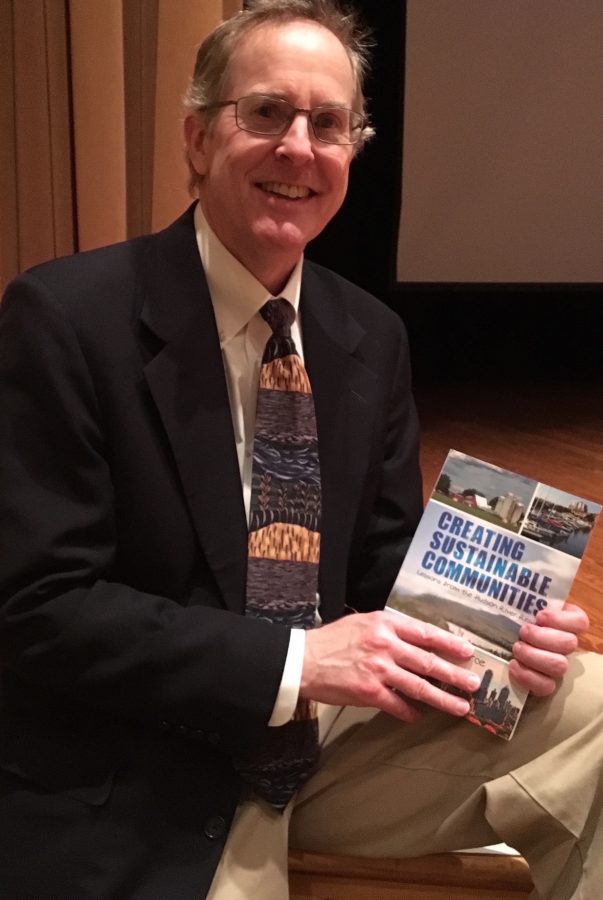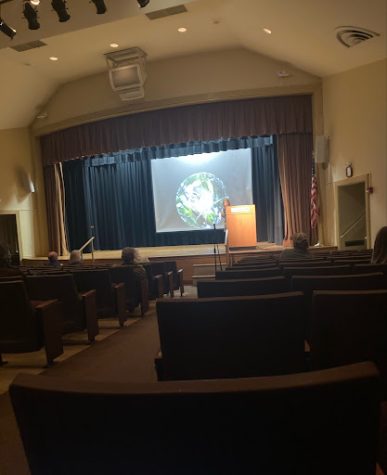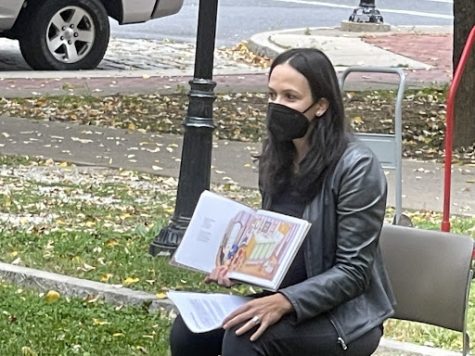Author, Skidmore College Environmentalist on Attaining Sustainability
In light of recent political debates regarding the elimination of environmental initiatives, Rik Scarce, author, documentarian, and sociology professor at Skidmore College, put a positive twist on the attainability of sustainability.
On March 22, Scarce was welcomed to Moravian College to give the presentation “A Thousand Little Things: Sustainability Lessons from the Hudson River Region.” He shared his research about the sustainability efforts near the Hudson River, relating them to the progress that could be made in the Bethlehem region.
“There is no reason why the success of the Hudson region communities cannot be replicated here or anywhere else,” said Scarce. “The region was home to poverty, but through sustainability they were able to ignite social and environmental change.”
Scarce discussed the triple bottom line that connects social and financial progress to environmental factors. The research on the Hudson region revealed that the poor condition of the environment was connected to social inequality. His research with his students found that air pollution facilities were primarily home to individuals of color and to those who were below the poverty line and less educated.
Scarce stressed the important connection between equity and the environment. “On level with the profit of the triple bottom line is people and planet,” he said. “Equity is treated not only as a class issue but an issue of race and ethnicity, as well. Environmental justice speaks to those topics. Environmental justice examines social inequalities and how they are exacerbated by environmental factors.”
In his presentation, Scarce showed clips from the documentary that accompanies his most recent book, Sustaining This Place: Creating a New Hudson River Region Landscape. Scarce showcased the efforts of Ecovative, a leading biomaterials company that works to produce environmentally-friendly products. From household insulation made out of mushrooms to packaging materials that can be used to fertilize gardens, the company invents innovative ways to promote sustainability. Evocative promotes what Scarce calls the “cradle to cradle mentality, where raw materials are taken from nature transformed in a manufacturing process and then they are returnable to nature.”
The film also addresses land use planning as an essential factor in the process towards igniting environmental change. As examples of pro-environment strategies that businesses can undertake, he mentioned siting offices in pedestrian-friendly locations and preserving land.
Scarce outlined the two key factors towards promoting sustainability efforts. The first was the need for strong democracy in the realm of policy and economy. The second involves the organization of sustainability advocacy to ensure that the community embraces environmental initiatives.
Scarce put sustainability efforts into perspective at the end of his talk. “Don’t focus on changing the world,” he said. “Focus on changing your corner of the world instead.”











